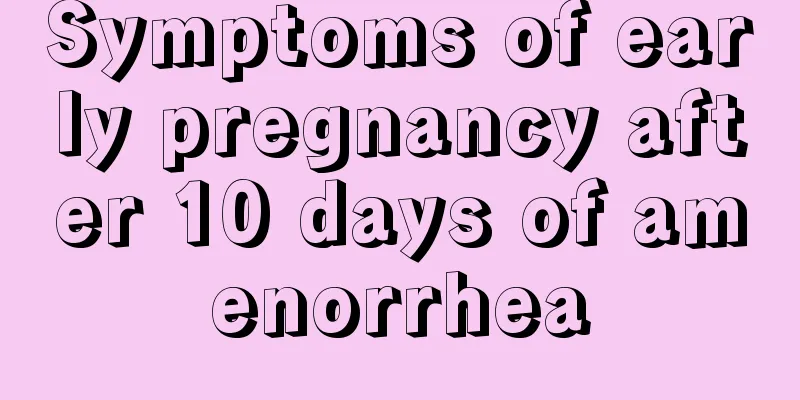How much do you know about over-the-counter medicines?

|
Whether you walk into a pharmacy or pick up a medicine box, you may see the OTC logo. OTC is the abbreviation of "Over the Counter", which means medicines that can be purchased over the counter, which is commonly known as over-the-counter drugs. Today, we invite pharmacy experts to introduce you to the knowledge of over-the-counter drugs. What are the characteristics of over-the-counter drugs? Drugs are divided into prescription drugs and over-the-counter drugs. Prescription drugs are drugs that can only be purchased, dispensed and used with a prescription from a practicing physician or practicing assistant physician, while over-the-counter drugs are drugs that patients can judge, purchase and use on their own. Generally speaking, patients can use over-the-counter drugs on their own after carefully reading the drug instructions or consulting a physician or pharmacist. The outer packaging of over-the-counter drugs is printed with the "OTC" logo. Over-the-counter drugs have the characteristics of definite efficacy, few toxic side effects, and low incidence of adverse effects. The indications of the drugs are diseases that patients can judge by themselves. Everyone can buy over-the-counter drugs at social pharmacies. Over-the-counter drugs in my country are divided into two categories: Class A OTC and Class B OTC. Category A OTC It can be obtained at the pharmacy of a medical institution, or at a social pharmacy that has a "Drug Business License" and is equipped with a practicing pharmacist or technical personnel above the pharmacist level. It must be purchased and used under the guidance of a professional. Category B OTC In addition to being available in social pharmacies and medical institution pharmacies, they can also be obtained in approved general retail commercial enterprises. Class B OTC is safer. Read the drug instructions carefully Before using over-the-counter drugs, you must read the drug instructions carefully and pay attention to the following points: Ingredients: When taking multiple drugs at the same time, you must determine whether these drugs contain the same ingredients to avoid duplicate use and prevent adverse reactions or even drug poisoning due to drug overdose. Indications: Clarify whether the drug is indicated for your current illness or condition. Dosage and Administration: Use the medicine according to the dosage and administration specified in the instructions. Do not increase or decrease the dosage at will. Special groups: The drug instructions generally include information on the use of drugs for children, the elderly, pregnant women and lactating women. Relevant groups must read the above content in detail before use to make sure whether they can take the drug. Contraindications: Indicates which groups of people or situations in which the drug cannot be used. Adverse reactions: Adverse reactions are listed in the drug instructions to help you identify them as soon as possible when they occur and seek medical attention in a timely manner if necessary. Of course, you don't have to be too nervous. Not every patient will experience adverse reactions after taking the drug, and the incidence of adverse reactions is generally low. Notes: You should read carefully other information that requires attention when using the drug. Kind tips Although you can buy over-the-counter drugs at pharmacies, this does not mean that you can use them at will. Before taking any medicine, please read the instructions carefully and consult a professional doctor or pharmacist if necessary. Do not use the medicine blindly or increase or decrease the dosage on your own, especially for special groups such as the elderly. Special reminder: if your symptoms do not improve significantly after taking the medicine, please seek medical attention in time. |
<<: To delay aging, can we really use young blood?
Recommend
Can Jinji tablets effectively treat cervical erosion?
Jinji tablets are effective in treating cervical ...
I haven't had my period for more than a month. What's going on?
Normally, the absence of menstruation for more th...
How many ml is cemoy facial cleanser? What brand is cemoy facial cleanser?
Those who have used amino acid cleansers know tha...
What causes lower body pain?
For female friends, if you find pain in your lowe...
What is the first period like after medical abortion?
Medical abortion is a very common abortion method...
What are the routine examination items for leucorrhea
It generally includes five items: testing the pH ...
There is a hard lump on the breast during lactation, no pain
Breast health is very important during lactation,...
What causes vaginal bleeding?
The vagina is a very important part for women. Wh...
After myopia surgery, here are 8 things you need to pay attention to in daily care!
Many of my myopic friends All choose to use surge...
The right side of the belly is higher in the late pregnancy
Women are always full of expectations for their b...
How can a 35-year-old woman lose weight?
Some people may feel that only young people have ...
Breast care measures after weaning, these methods can help you
The process of breastfeeding can cause great harm...
Is it good to eat sea cucumber after childbirth? What are the taboos?
Sea cucumbers are rich in nutritional value and c...
Social media becomes the new travel postcard: Australian millennials love posting their travels online
With the widespread popularity of social media, A...
Why do I have diarrhea every time I have my period?
Menstrual cramps are an indescribable pain for ma...









